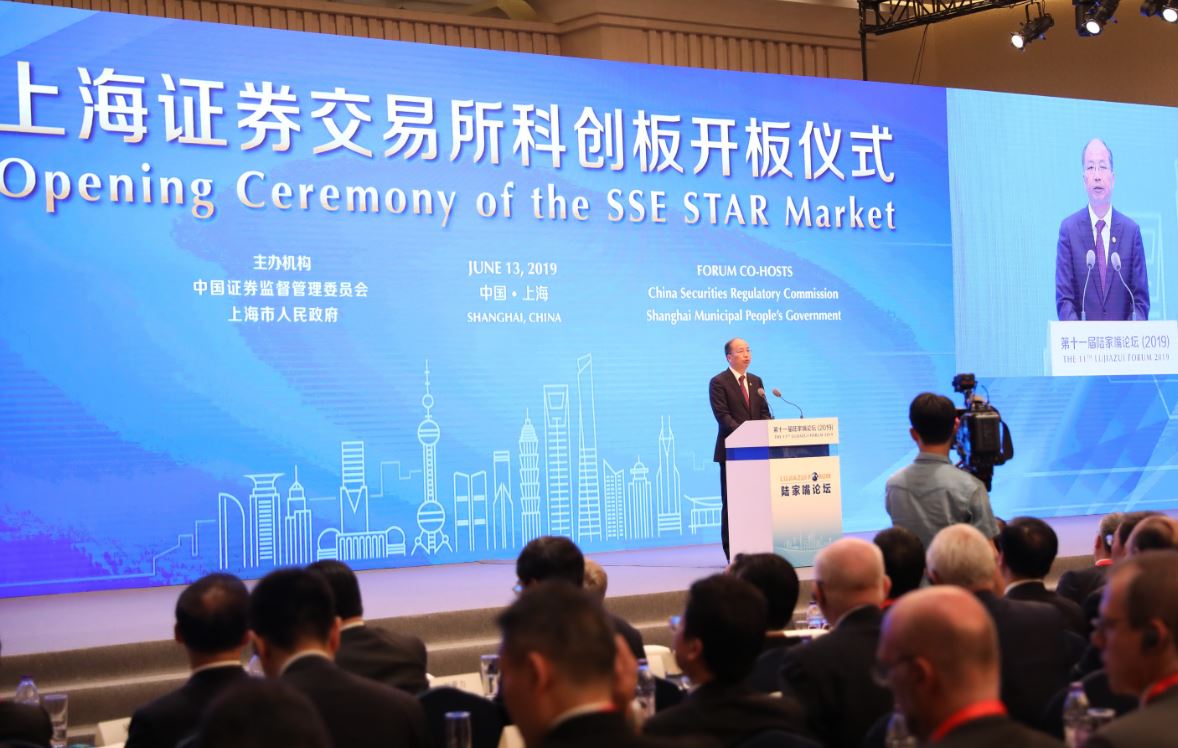STAR will back successes, and foster innovation


The registration-based initial public offering system piloted by the STAR Market-China's new science and technology innovation board on the Shanghai Stock Exchange - is the most critical innovation of the rules governing the A-share market and will help revamp the whole market.
There are two types of IPO systems worldwide: the government-led approval-based system and the market-led registration-based system.
China's A-share market has long adopted the approval-based system, and the country's top regulators decided to push ahead the registration-based IPO reform in 2013. The reform will soon start from the STAR Market.
How is the STAR Market's registration-based system superior to the approval-based system used by other submarkets? And how will this pilot reform change the A-share market?
Firstly, the registration-based system - it has information disclosure as its core - empowers the market, instead of regulators, to judge the investment value of firms.
Under the approval-based system, regulators decide which companies can be listed in IPO application reviews by comparing their financial indicators. By doing so, they actually judge the investment value of the applicants.
This practice has made the review a contest between applicant firms to see who has the best financial results. Innovative companies often lose and find it hard to get listed because they do not have as stellar historical financial results as their peers in mature industries.
Moreover, this review mechanism could induce financial frauds, as applicant firms want to "beautify" their financial reports and win the contest.
On the contrary, reviews under the registration-based system focus on verifying whether the application filings disclose authentic and adequate information in accordance with related rules.
The aim of reviews is to ensure investors get the information they need to judge the value of issuers and make investment decisions accordingly.
In other words, regulators do not endorse or assure the investment value of listed firms, but let investors learn how to make rational decisions. Therefore, by helping the market strengthen its role in resource allocation, the registration-based system boasts higher efficiency.
Secondly, the registration-based system separates the IPO application reviews from regulatory work, helping reduce market administrative interventions.
The China Securities Regulatory Commission is in charge of both the reviews and market regulation under the approval-based system. This scheme is inclined to overdo administrative interventions from the regulator, such as the unwritten price-to-earnings ratio ceiling of 23 for IPOs and IPO pauses during market downturns to mitigate downside pressure.
The registration-based system adopts a more reasonable task division, where the SSE specializes in IPO application reviews and the CSRC focuses on market regulation. This specialization could not only boost regulatory efficiency but help reduce administrative interventions in the IPO process.
Thirdly, the registration-based system could create an innovation-friendly market condition.
The approval-based system adopts a single set of IPO standards, which emphasizes the assessment of applicant firms' profit and asset scales, instead of growth potential reflected by revenue, market capitalization and other indicators. Such assessment principles are unfriendly to innovative enterprises and cannot fit China's need for economic upgrades.
The registration-based system of the STAR Market has multiple sets of IPO standards inclusive of innovative enterprises, such as those with dual-class share structures and unable to make profit.
Multiple sets of delisting standards are also characteristics of the registration-based system, requiring investors to tolerate failures, which are inevitable in innovations. Only with the inclusiveness vis-a-vis innovation and failure can the STAR Market really become a Nasdaq-like board and foster great and innovation-pioneering Chinese enterprises.
Experts hope the registration-based system will be adopted not only on the STAR Market but other submarkets in the A-share market soon, strengthening the market's decisive role in resource allocation.
This will comprehensively elevate the inclusiveness and openness of the A-share market, enabling it to drive the country's economic restructuring and upgrading.
Dong Dengxin is the director of the Finance and Securities Institute at the Wuhan University of Science and Technology.




































